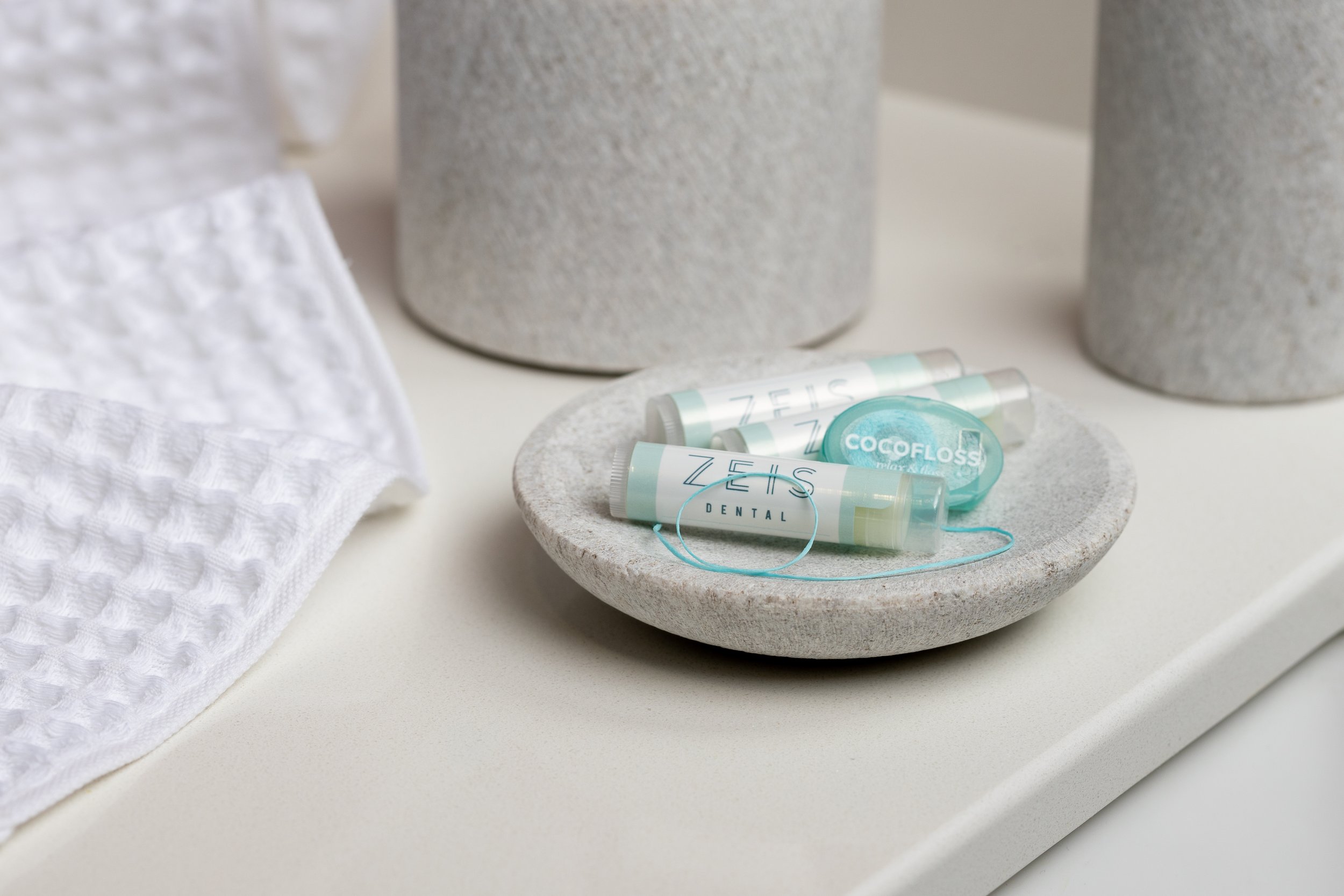
All the ways we take care of your smile.
Preventive Care
Exams | Dental Cleanings | Sealants | Periodontal Treatments
Regular preventive care is the foundation of your dental health. Our Preventive Dental Care services include exams, cleanings, fluoride treatments, digital x-rays, and education.
-
Dental cleanings are performed by our gentle and skilled hygienists. They remove hard mineral deposits and the soft sticky plaque with a combination of ultrasonic cleaning and hand instruments. Teeth are flossed and polished. They may also provide you with a fluoride treatment if your teeth are at higher risk for cavities.
-
The recommendation from the ADA and our office is every 6 months. There are some individuals who only need to come in once a year and some who need (or prefer) to come in every 3 or 4 months. It really depends on the individual’s risk type and oral hygiene.
-
A dental hygienist can clean all the areas of the teeth where you cannot reach effectively with a toothbrush. Many stains and discolorations will be removed with a dental cleaning. The dental hygienist is trained to spot signs of gum disease, oral pathology, and cavities. This type of early intervention can save your teeth and prevent future dental work.
-
X-rays are part of a thorough and comprehensive exam. All dentists will look at your mouth with their eyes, feel your teeth with an explorer instrument, and look at the x-rays. Together, these three basic diagnostic methods are the most effective at diagnosing decay, infection, developmental abnormalities, and lesions in the teeth and jaws. Without all three methods, we cannot sign off with confidence any diagnosis or prognosis for you. X-rays are a standard of dental care that all dentists uphold. The Board of Dentistry expects this of us, the insurance companies expect this of us, and our patients expect this of us.
-
Fluoride strengthens teeth and protects them from the acidic plaque that bacteria produce. For people who want to have strong healthy teeth for the rest of their lives, fluoride is an important partner (along with a healthy diet, brushing, and flossing) in preventive dental care.
-
When a dentist grabs your tongue and turns it side to side, you should count yourself lucky! This little tongue maneuver is how we screen for oral cancer and any other weird things that could be going on in your mouth. We look at the inside of your cheeks, your gums, the roof of your mouth, your throat, your tonsils, the sides of your tongue, and the floor of your mouth.
-
Dentists are probably the only health care provider that people see two times a year, whether you’re sick or healthy. That’s why we screen for hypertension (high blood pressure) and for airway issues. In the case of high blood pressure, we inform you of your elevated reading and recommend you discuss it with your medical doctor. It might just be the coffee you had coming in that affected the reading, but maybe it isn’t.
With airway issues, dentists are uniquely poised to help out because they already examine the head, throat, and mouth. Many people are walking around today and suffering from sleep apnea or another form of airway disorder. This lack of quality sleep will affect children and adults significantly with real health and emotional consequences. In children, this can be in the form of altered dento-facial development, learning difficulties, asthma, allergies, hyperactive behavior, or listlessness. In adults, it includes chronic fatigue, disrupted hormone levels, TMJ pain, and increased morbidity.
Patients are identified as possibly having airway issues through a questionnaire and exam. For many cases, patients are referred to an ENT. Some airways issues can be managed through orthodontics, oral surgery, or the use of an oral appliance. Sleep and airway disorders are most successfully managed with the collaboration of your ENT and dentist.
Restorative Dentistry
Composite Fillings | Veneers and Crowns | Dental Implants | Root Canals
Even with regular brushing, flossing and preventive care, cavities and other dental issues still happen from time to time. Our General and Restorative Dentistry services include cavity fillings, sealants, periodontal treatments, root canals, veneers, implants, and crowns. We offer treatment for teeth grinding (bruxism), including night guards, as well as Botox treatments for myofascial pain, headaches, joint issues, clenching, and bruxism.
Composite Fillings
We use various shades of tooth-colored composite for your fillings. Not only is it esthetic, it is the more conservative treatment when compared to the silver amalgam fillings.
Amalgam is held in simply by mechanical retention: we condense the pliable mix into the cavity preparation and it expands slightly when it hardens. To provide the retention that amalgam needs, tooth structure additional to the decay is removed by way of extensions, dovetails and undercuts.
With composite fillings, only the decayed area is removed. Adhesive is placed between the tooth and the composite is bonded to the tooth. If there is secondary decay (decay around an old filling) around an amalgam filling, the entire filling must be removed and a new, larger filling placed. Around a composite filling? Just remove the affected area.
In general, composites allow for conservative fillings and that helps maintain a tooth's longevity.
Veneers and Crowns
Veneers are layers of thin porcelain that are bonded to the fronts of your teeth. They can dramatically change the color, shape, and even alignment of your teeth with minimum alteration to the enamel. Less than a millimeter is removed from the enamel of your teeth to accommodate veneers. Anterior teeth are normally the best candidates for veneers.
With advances in digital dentistry, patients are now able to preview their smile before their teeth are treated. At a smile consult, photos and a digital scan of the mouth are taken. The resulting plan is then presented in two ways: a picture with the proposed veneers and/or a 3D trial of the veneers in the mouth.
Dental Implants
Dental implants are, in many instances, the best treatment option for missing teeth. Implants consist of a titanium "screw" that is surgically inserted into the area of the missing tooth , a porcelain crown that fits on top of it, and an abutment post that connects the two pieces. After surgical insertion of the implant, bone grows around the implant and fuses to it. This process takes 3-4 months and once completed, the implant is completely and solidly integrated into your jaw. A crown is then fitted for your implant.
Implants are often recommended as the best treatment because it preserves bone (without the long roots of a tooth to support, bone just shrinks and disappears), no adjacent teeth are altered (as they always are for bridges and partial dentures), and they feel like natural teeth.
Almost 98% of dental implants will last the life of the patient. This figure makes the choice of an implant versus a bridge the best value. Bridges are placed on natural teeth and are still susceptible to cavities. Implants are stronger than your own natural teeth and will never develop cavities.
Root Canals
This is a procedure that is designed to save a tooth when it has experienced trauma through injury or extensive decay. In both cases, the nerve and blood vessels inside the tooth die and can cause discoloration, pain, and/or infection.
Root canals involve the removal of the dead nerve and blood vessels. The canals inside each root of the tooth are cleaned of bacteria and filled. Depending on the condition of your tooth, you may need a crown to complete the root canal treatment.
Cosmetic Dentistry
Good dental health means taking care of the way your teeth and your smile look, too. Our Cosmetic Dentistry Services include straightening teeth (with Invisalign® clear aligners), repairing chipped or broken teeth, replacing missing teeth.
Specialty Dentistry
Clear Aligners | Night Guards | Botox
Some of the most challenging cases and conditions we treat are collaborations with medical specialists in different fields. Specialty Care through our practice includes an exclusive network of local specialists and experts who become part of your care team.
Clear Aligners
Straighten your teeth with a series of custom-made, nearly invisible aligners that are comfortable to wear, and removable for meals and normal brushing and flossing.
Night Guards
Bruxism is the clinical description for teeth grinding. There are all sorts of stresses in our life that manifest themselves at nighttime while we sleep. We can clench our teeth or grind them. Oftentimes, the grinding patient is unaware of the problem. It's normally the sleeping partner who hears it or the dentist who sees the damage.
Teeth affected by bruxism are flattened, fractured, and can lead to a collapsed bite. Teeth affected by clenching have crescent-shaped indentations at the base of the teeth. These are areas where your enamel has simply sheared off or worn away due to the pressure and flexure of your clenched teeth. The effects of clenching and bruxism can both be minimized by nightguards. Nightguards are slim acrylic retainers that you wear in your mouth while you sleep. They protect the surfaces of the teeth and reduce the forces of clenching.
Botox
Botox is a neuromodulator that temporarily relaxes targeted muscles. In dentistry, it is used to treat myofacial pain, headaches, joint issues, clenching, and bruxism. It is also used in the upper half of the face to prevent dynamic wrinkling. The most popular areas for treatment are the horizontal forehead lines, the vertical frown lines between the eyebrows, and crow's feet.





